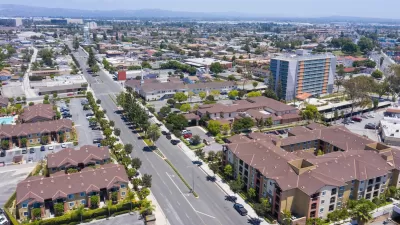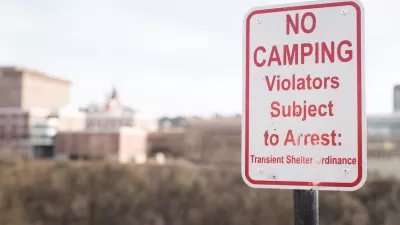A commission report found that Maui does not have a comprehensive plan for supporting unhoused residents, leaving efforts largely to nonprofit organizations.

“Maui’s Cost of Government Commission, a nine-member group tasked with looking for ways to make the county government more effective, recently released a 559-page report looking at ways Maui could end homelessness and ensure that anyone who loses their housing can get into a shelter.”
According to reporting by Marina Starleaf Riker for Honolulu Civil Beat, “Among their key findings: despite sharing a common goal that one day, no Maui residents will have to live on the street, there’s ‘persistent disagreement’ among the organizations working to help them, and no one has a comprehensive plan on how to do that work either.”
Maui, like many communities across the continental U.S., has watched in recent decades as the presence of people living on streets has become increasingly visible. The phenomenon, experts say, can be blamed on decades of policy decisions and the economic consequences that followed: slashing funding for federal housing programs, the lack of investment in mental and physical health care, mass incarceration, soaring housing prices and stagnant wages for the working class.
The report acknowledges the county’s need for external advice. “The report’s main suggestion: Use county dollars to hire an expert to come up with a plan to end homelessness, similar to how the county just spent roughly $300,000 on a consultant to examine ways to build more affordable housing.”
FULL STORY: Report: Maui Needs A Plan If It Actually Wants To End Homelessness

Planetizen Federal Action Tracker
A weekly monitor of how Trump’s orders and actions are impacting planners and planning in America.

Restaurant Patios Were a Pandemic Win — Why Were They so Hard to Keep?
Social distancing requirements and changes in travel patterns prompted cities to pilot new uses for street and sidewalk space. Then it got complicated.

Map: Where Senate Republicans Want to Sell Your Public Lands
For public land advocates, the Senate Republicans’ proposal to sell millions of acres of public land in the West is “the biggest fight of their careers.”

Maui's Vacation Rental Debate Turns Ugly
Verbal attacks, misinformation campaigns and fistfights plague a high-stakes debate to convert thousands of vacation rentals into long-term housing.

San Francisco Suspends Traffic Calming Amidst Record Deaths
Citing “a challenging fiscal landscape,” the city will cease the program on the heels of 42 traffic deaths, including 24 pedestrians.

California Homeless Arrests, Citations Spike After Ruling
An investigation reveals that anti-homeless actions increased up to 500% after Grants Pass v. Johnson — even in cities claiming no policy change.
Urban Design for Planners 1: Software Tools
This six-course series explores essential urban design concepts using open source software and equips planners with the tools they need to participate fully in the urban design process.
Planning for Universal Design
Learn the tools for implementing Universal Design in planning regulations.
Heyer Gruel & Associates PA
JM Goldson LLC
Custer County Colorado
City of Camden Redevelopment Agency
City of Astoria
Transportation Research & Education Center (TREC) at Portland State University
Camden Redevelopment Agency
City of Claremont
Municipality of Princeton (NJ)





























